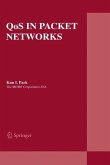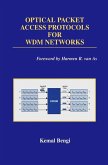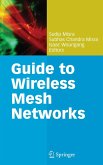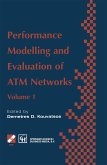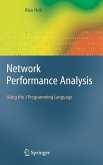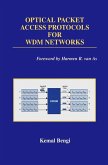QoS is an important subject which occupies a central place in overall packet network technologies. A complex subject, its analysis involves such mathematical disciplines as probability, random variables, stochastic processes and queuing. These mathematical subjects are abstract, not easy to grasp for uninitiated persons.
QoS in Packet Networks is written with two objectives. The first explains the fundamental mathematical concepts used in QoS analysis as plainly as possible, in layman's terms to afford the reader a better appreciation of the subject of QoS treated in this book. The second explains in plain language, the various parts of QoS in packet networks, to provide the reader with a complete view of this complex and dynamic area of communications networking technology. Discussion of the functional requirements of the packet networks to provide QoS is included.
Hinweis: Dieser Artikel kann nur an eine deutsche Lieferadresse ausgeliefert werden.
QoS in Packet Networks is written with two objectives. The first explains the fundamental mathematical concepts used in QoS analysis as plainly as possible, in layman's terms to afford the reader a better appreciation of the subject of QoS treated in this book. The second explains in plain language, the various parts of QoS in packet networks, to provide the reader with a complete view of this complex and dynamic area of communications networking technology. Discussion of the functional requirements of the packet networks to provide QoS is included.
Hinweis: Dieser Artikel kann nur an eine deutsche Lieferadresse ausgeliefert werden.
From the reviews: "The book has a clear structure, with well-organized material. The basic concepts are presented in a clear way, with lots of examples and figures. An easy understanding of the topics covered in this book is further facilitated ... . This is a great book for someone looking for a basic background on QoS provisioning in packet networks. ... this book can be used in a one-semester, advanced undergraduate course focused on QoS aspects of next generation packet networks." (George Kormentzas, Computing Reviews, April, 2005)


